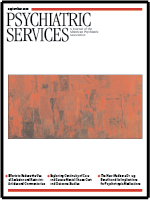Cognitive Therapy Techniques: A Practitioner's Guide
Upon discovering that a client is suitable for cognitive therapy, often one must then ponder how to find a qualified therapist. Robert L. Leahy, Ph.D., clinical associate professor of psychology at Cornell University Medical School, has compiled many creative techniques to foster training in this modality. Cognitive Therapy Techniques: A Practitioner's Guide includes 84 reproducible client handouts and assessment tools. The book presents each technique with a description, questions to ask, therapist-client vignettes, homework assignments for recording and challenging cognitive distortions, strategies for overcoming a client's resistance, cross-referenced techniques, and a list of forms to assist a client in therapy. As expected, much attention is devoted to automatic self-denigrating thoughts, underlying assumptions, ruminations, syllogistic errors, and discussion of schema-focused therapy for problems of character pathology.
The ABC technique permits clients to write down the activating event, the belief, and the consequences of emotions and behaviors. The book includes a superb cognitive distortion checklist. The vertical descent technique requires clients to imagine what could happen if a belief were true. The therapist asks clients to assign probability to a concern and test the outcome, convert worry into prediction, and engage in a point-counterpoint to learn from unconfirmed expectations. Leahy introduces the value of acceptance, an attitude of observing rather than attempting to control events. He reframes relapse as a natural experiment from which to learn. The technique of reduction ad absurdum helps clients challenge beliefs by carrying catastrophic fantasies to absurd conclusions. Acting as a defense attorney and role-playing both sides of a belief are further eclectic examples.
The book would have benefited from references to literature on efficacy with specific DSM-IV-TR disorders (1). The information in the chapter called "Emotional Processing Techniques" is insufficient for treating trauma. And although the author recognizes "hot spots" in personal narratives of abuse, one should seek substantial guidance in treatment of posttraumatic stress disorder elsewhere (2). Synergistic behavioral interventions—for example, exposure with response prevention—are lacking.
Given the dearth of training in cognitive therapy (3), and given that I teach a seminar on the subject to psychiatric residents, I welcome Leahy's text to our academic reading list.
Dr. McClenahan is assistant professor of clinical psychiatry at Tulane University School of Medicine in New Orleans and medical director of Region 3 of the office of mental health, Louisiana State Department of Health and Hospitals.
1. Fava GA, Ruini C, Rafanelli C, et al: Six-year outcome of cognitive behavior therapy for prevention of recurrent depression. American Journal of Psychiatry 161:1872–1876,2004Link, Google Scholar
2. Foa EB, Keane TM, Friedman MJ: Effective Treatments for PTSD: Practice Guidelines From the International Society for Traumatic Stress Studies. New York, Guilford, 2000Google Scholar
3. Sudak DM, Beck JS, Gracely EJ: Readiness of psychiatry residency training programs to meet the ACGM requirements in cognitive-behavioral therapy. Academic Psychiatry 26:96–101,2002Crossref, Medline, Google Scholar



